Peak Solar Pro’s Complete Solar Panel FAQ for New England Homeowners & Business Owners
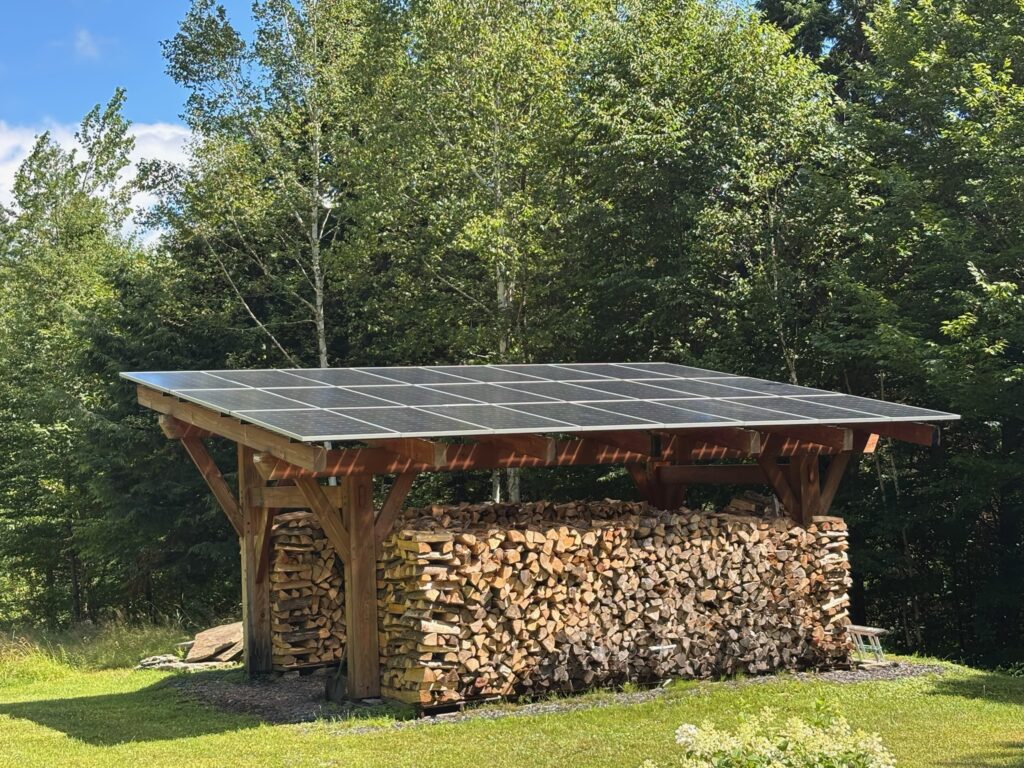
Thinking about solar in New England? You’re not alone. With some of the highest electricity rates in the country and strong state incentives, more homeowners and business owners here are asking how solar could work for them. This guide answers the most common questions we hear from people in Massachusetts, Rhode Island, Connecticut, New Hampshire, Maine, and Vermont.
Understanding the Basics
How do solar panels work in New England?
Solar panels use photovoltaic (PV) cells to turn sunlight into electricity. Even on shorter winter days, those cells work whenever the sun shines. The energy solar panels produce is direct current (DC), which an inverter changes into alternating current (AC) so it can power your home or business. If your system generates more than you need, the excess goes to the grid, and under New England’s net metering rules, you get credits to use later. (Source: U.S. Department of Energy)
Are solar panels worth it in our region?
Yes, for most New England properties with good sun exposure. Electricity rates here are among the highest in the U.S., and state-level incentives, plus the federal tax credit, shorten the payback period. Even with variable weather, well-designed systems perform strongly year-round thanks to clear, sunny days in fall and winter and long daylight hours in summer. (Source: EnergySage)
How long do solar panels last?
The majority of the solar panels available come with a 25-year performance warranty. The good news is that many keep producing power for decades beyond that. In New England, cooler average temperatures help extend the system’s life. Inverters usually need replacement after 10–15 years. (Source: EnergySage)
How much do solar panels cost in New England?
For a typical home or small business in New England, the cost of solar panels range from $15,000 to $25,000 before incentives. Incentives such as the Massachusetts SMART program, Rhode Island’s Renewable Energy Fund grants, or state net metering can reduce your cost dramatically. (Source: EnergySage)
What are the pros and cons of solar in our climate?
The most significant benefits are high utility savings, stable energy costs, and lower environmental impact. New England’s cold, clear winters can boost panel efficiency, and our state programs make going solar financially appealing. The main challenges are roof shading from tall trees and snow cover in heavy winter storms — both of which can be planned for in system design. (Source: U.S. Department of Energy)
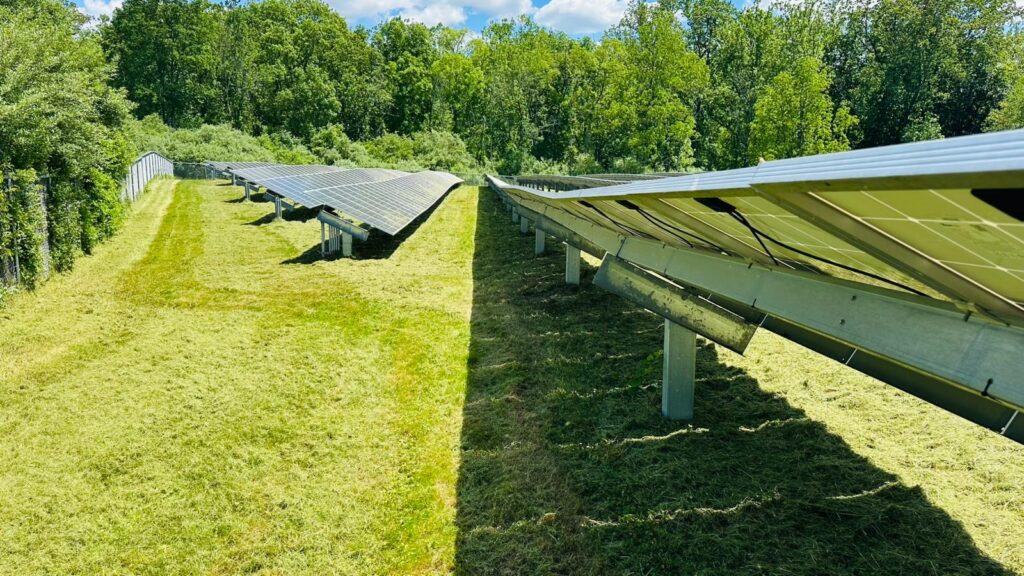
Performance and Output
Can solar panels power my whole home or business year-round?
Yes, with the right system size and design. Systems often produce more than enough in summer, building credits you can use in winter when days are shorter. With batteries, you can cover more of your needs during grid outages, a growing concern for many New Englanders. (Source: U.S. Department of Energy)
How efficient are panels in our area?
Modern panels convert 15–22% of sunlight into electricity. In cooler climates like New England, panels often perform better than in hotter regions because heat can lower efficiency. (Source: NREL)
Are solar panels affected by cloudy or snowy weather?
Yes. Cloudy days reduce output, but your system still produces power. Snow temporarily blocks sunlight, but panels are designed so snow slides off more easily, especially when installed at the correct tilt. Many owners use net metering credits from sunnier months to offset winter dips. (Source: U.S. Department of Energy)
What’s the best direction and angle for panels in New England?
South-facing panels get the most consistent sunlight. A tilt angle between 30° and 40° works well here and can help snow slide off more quickly. Roof orientation and shading are factored into every system design we do. (Source: EnergySage)
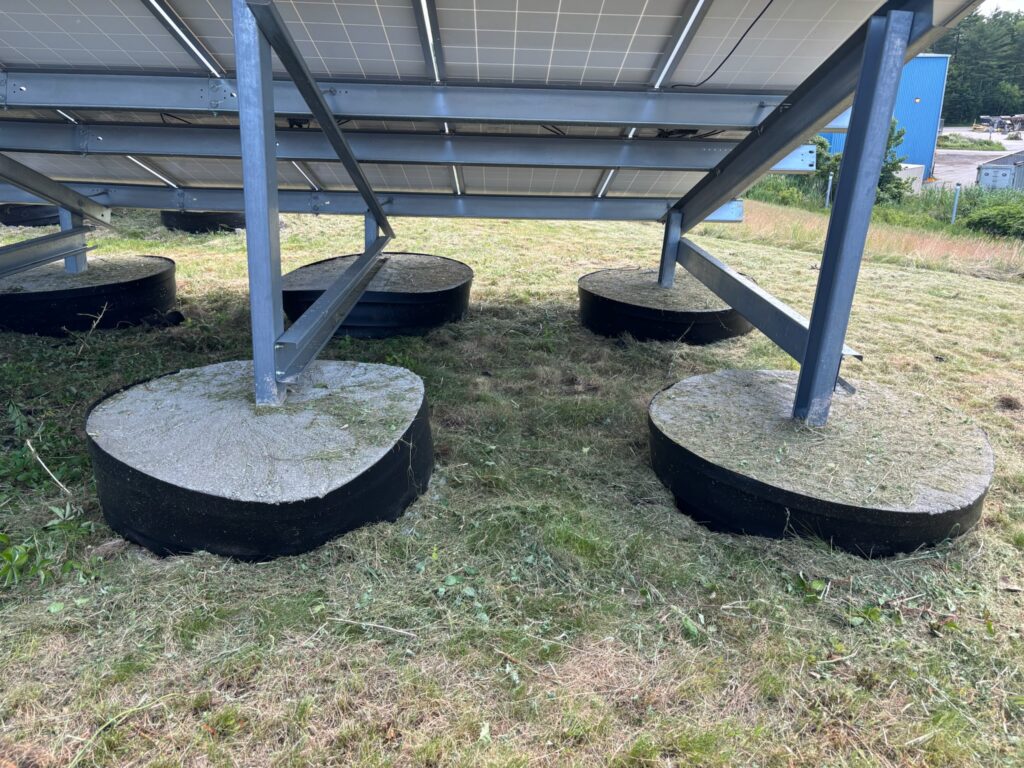
Installation and Maintenance
Do solar panels need regular maintenance in New England?
Yes, regular maintenance is essential for your solar panel system. Cleaning solar panels properly, whether roof mounted or ground mounted, is best left to professionals. Besides cleaning the panels regularly, vegetation management is also important. Peak Solar Pro can take care of your cleaning and vegetation management needs.
How many panels will I need?
It’s often 15–25 panels for New England homes, depending on your electricity use and roof size. For businesses, the number depends on your square footage and equipment demand. We size each system based on your actual electric bills and roof layout. (Source: EnergySage)
Will installation damage my roof?
When done right, no. Panels can protect the roof beneath them. We inspect the roof before installation and recommend repairs if needed to ensure your system lasts as long as your roof does. (Source: EnergySage)
Can panels cause fires?
The risk is extremely low when installed by qualified professionals. Our systems meet all local building and electrical codes to prevent safety issues. (Source: NFPA)
Do panels attract lightning?
No. They don’t increase strike risk. Proper grounding is part of every installation we do. (Source: NREL)
Are panels noisy or harmful to health?
No. Panels are silent, and there’s no evidence of any health risk. Materials are sealed and safe under regular use. (Sources: U.S. DOE, EPA)
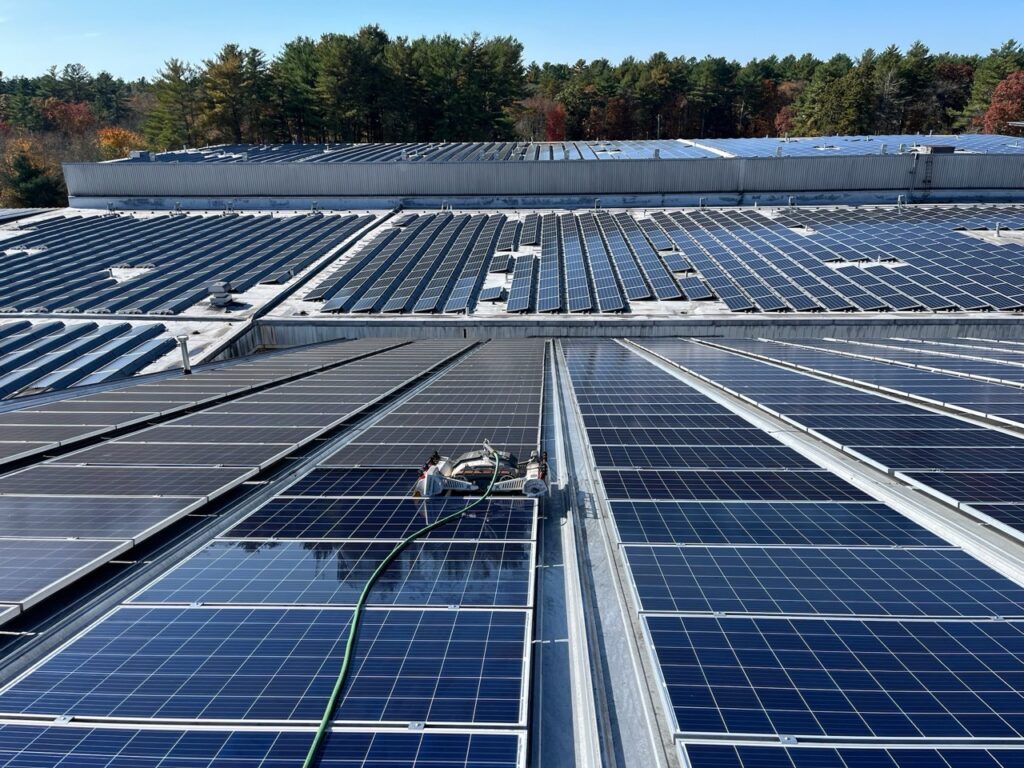
Technology Choices
Monocrystalline vs. polycrystalline: Which is better for New England?
Monocrystalline panels are more efficient and handle low-light conditions well, which can be helpful on shorter winter days. Polycrystalline panels cost less but are slightly less efficient. Both types work in our climate. (Source: EnergySage)
Grid-tied or off-grid — which makes sense here?
Most homeowners and businesses choose grid-tied systems because of our strong net metering policies. Off-grid systems are less common here but can work in remote areas with battery storage. (Source: U.S. Department of Energy)
What is net metering in New England?
Net metering allows a solar panel owner to earn credits for extra electricity that the system sends to the grid. Those credits help cover your usage in months when your system produces less. Rules differ slightly by state, but all six New England states have some form of it. (Source: SEIA)
Financial and Incentives
How much can I save here?
Savings vary by state, but high electricity rates mean most New England homeowners save significantly — often $1,000 or more annually. Businesses can see even bigger returns. (Source: EnergySage)
Lease or buy?
Buying maximizes savings and lets you claim tax credits and state incentives. Leasing reduces upfront costs but may give you fewer long-term benefits. We walk clients through both options based on their budget and goals. (Source: SEIA)
How long to break even?
In our region, the average payback time is 6–9 years. After that, your electricity is essentially free for the remaining life of the system. (Source: EnergySage)
Will solar raise my property value?
Yes. Homes and businesses with solar often sell for more and appeal to buyers looking for lower operating costs. (Source: Lawrence Berkeley National Laboratory)
What incentives can I get?
Along with the 30% federal tax credit, New England states offer strong programs like Massachusetts SMART, Rhode Island REF, and Maine’s net energy billing credits. Incentives change, so we always confirm current options before installation. (Source: DSIRE)
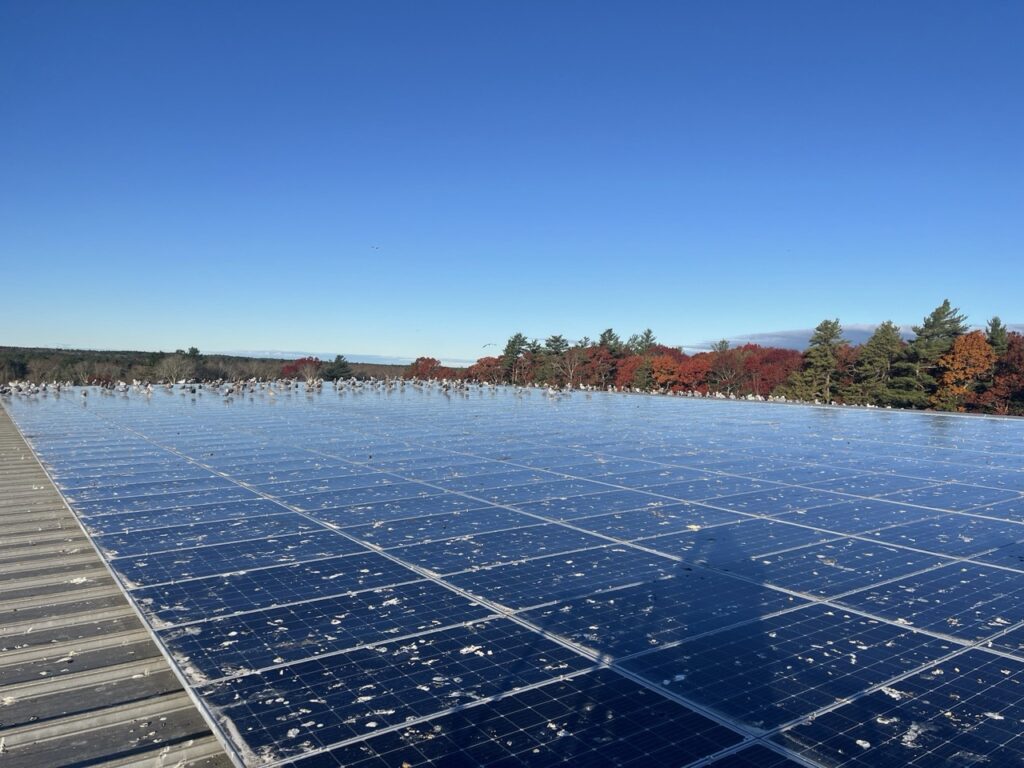
Environmental Impact
Are solar panels suitable for the environment here?
Yes. They produce clean power and help reduce the region’s reliance on fossil fuels. Overall, panels offset far more pollution than is created during manufacturing. (Sources: EIA, NREL)
Will they reduce my carbon footprint?
Absolutely. A typical New England system offsets 3–4 tons of CO₂ annually, the equivalent of planting about 100 trees. (Source: EPA)
Can panels be recycled?
Yes. Most parts can be recovered, including glass, aluminum, and valuable metals. Recycling programs are expanding across the region. (Sources: EPA, NREL)
Is solar truly renewable?
Yes. The sun provides a daily, renewable energy source that will last billions of years. (Source: NREL)
Myths and Misconceptions
Is solar a scam?
No. Solar energy is a proven technology that is widely used in New England. The problems you hear about come from misleading sales tactics, not the panels themselves. Working with a reputable, local installer like Peak Solar Pro ensures you get accurate information and the right system. (Source: U.S. Department of Energy)